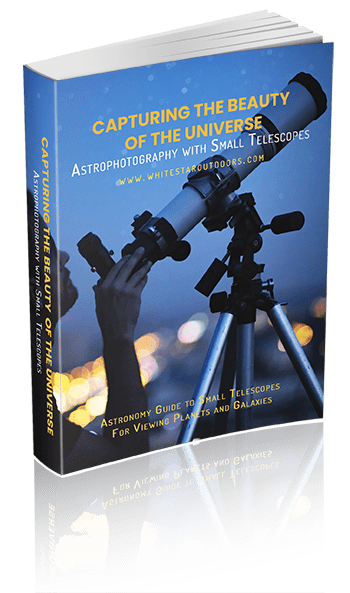Introduction
Astronomical telescopes for stargazing, can be a captivating hobby, as it opens a window into the vast universe. It allows us to explore celestial wonders like planets, stars, and galaxies and ignites a sense of wonder and awe.
Whether you’re a novice or an experienced astronomer, rest assured that having the right telescope is essential for an enjoyable and successful stargazing experience. Let us guide you on this journey.
The right telescope can make a significant difference in the clarity and detail of the images you observe. In this article, we will delve into the best astronomical telescopes available on the market, what to consider when choosing one, and the accessories that can enhance your stargazing adventures.
By understanding these elements, you can make an informed decision and elevate your stargazing journey to new heights.
What Are Astronomical Telescopes?
Astronomical telescopes are tools designed to observe celestial objects by collecting and magnifying light.
What Are the Different Types of Astronomical Telescopes?
There are three main types:
- Refractors,
- Reflectors, and
- Compound telescopes.
What to Consider When Choosing an Astronomical Telescope?
1. Aperture Size
Aperture size determines the amount of light the telescope can gather, directly impacting the brightness and clarity of the images.
2. Focal Length
Focal length affects the telescope’s magnification and field of view. Longer focal lengths provide higher magnification, while shorter ones offer a more comprehensive view.
3. Magnification
Magnification is crucial for viewing detailed features of celestial objects. It is determined by the combination of the telescope’s focal length and the eyepiece used.
4. Mount Type
The mount type influences the telescope’s stability and ease of use. Common types include altazimuth and equatorial mounts, each offering different benefits.
5. Portability
Astronomers who need to transport their telescopes to various observation sites must consider portability, weight, and ease of assembly.
What Are the Best Astronomical Telescopes for Stargazing?
1. Celestron NexStar 8SE
Features: The Celestron NexStar 8SE features an 8-inch aperture and a computerized mount with SkyAlign technology, which simplifies the alignment process. It also includes a GoTo mount with a database of over 40,000 celestial objects.
Benefits: This telescope is perfect for both beginners and advanced users due to its user-friendly setup and powerful optics, providing bright, clear views of deep-sky objects. The computerized mount makes locating and tracking objects easy and efficient.
2. Orion SkyQuest XT8
Features: The Orion SkyQuest XT8 is a Dobsonian telescope with an 8-inch aperture, offering excellent light-gathering capabilities. It has a stable Dobsonian base and a large parabolic primary mirror.
Benefits: This telescope provides stunning views of the moon, planets, and deep-sky objects. Its stable mount allows for smooth manual tracking, making it an ideal choice for serious stargazers looking for high performance at an affordable price.
3. Meade Instruments LX90-ACF
Features: The Meade Instruments LX90-ACF boasts advanced coma-free optics and a 12-inch aperture, ensuring crisp, clear images with reduced optical aberrations. It features GPS alignment and an advanced computerized system.
Benefits: This telescope is perfect for dedicated astronomers seeking precision and advanced features. The large aperture and advanced optics provide exceptional image quality, while the GPS and computerized mount make setup and tracking effortless.
4. Sky-Watcher Classic 200P
Features: The Sky-Watcher Classic 200P is a versatile 8-inch Dobsonian telescope with a parabolic primary mirror for sharp, high-contrast views. It features a simple, sturdy Dobsonian mount.
Benefits: This telescope offers excellent optical performance and is great for both beginners and experienced astronomers. The stable mount and high-contrast views make it a reliable, high-quality instrument for observing a wide range of celestial objects.
5. Gskyer Telescope
Features: The Gskyer Telescope is a beginner-friendly refractor telescope with a 70mm aperture and fully coated optics for clear, bright images. It comes with multiple eyepieces, a stable tripod, and an altazimuth mount.
Benefits: This telescope is ideal for newcomers to astronomy who need an affordable, portable, and user-friendly option. The included accessories and easy-to-use design make it a great starting point for stargazing.
What Accessories Can Enhance Your Stargazing Experience?
1. Eyepieces
Different eyepieces provide various magnifications, enhancing your ability to view celestial objects in detail.
2. Barlow Lens
A Barlow lens increases the magnification of any eyepiece, offering more detailed views without purchasing additional eyepieces.
3. Filters
Filters improve the visibility of particular celestial objects by reducing glare and enhancing contrast, making details more discernible.
4. Red Light Headlamp
A red light headlamp helps maintain night vision while observing the night sky, allowing you to see your equipment without affecting your adaptation to darkness.
5. Telescope Bag or Case
A telescope bag or case is essential for safely transporting and storing your telescope, protecting it from damage and making it easier to carry to different observation sites.
Conclusion
Selecting the right telescope can significantly enhance your stargazing experience. Whether you are a beginner or an experienced astronomer, choosing a telescope with the appropriate features and accessories is crucial for exploring the night sky.
- The Celestron NexStar 8SE,
- Orion SkyQuest XT8,
- Meade Instruments LX90-ACF,
- Sky-Watcher Classic 200P, and
- Gskyer Telescope
Each offers unique benefits tailored to different needs and levels of expertise. Investing in quality accessories can further improve your celestial observations.
Armed with the right equipment, and the best astronomical telescopes for stargazing you can embark on a fascinating journey through the cosmos, uncovering the mysteries of the universe.
Happy stargazing!





